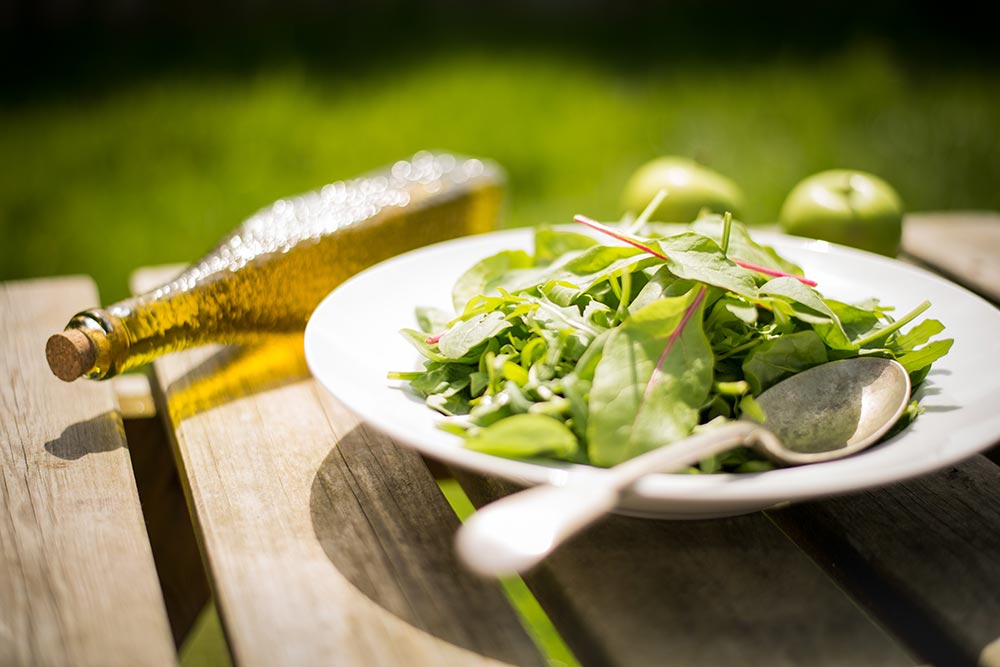Dayton Kelly
This article was adapted from a combination of speeches given at the European Sports Science Conference 2018, most notably Cindy Van Der Avoort (Han University of Applied Sciences, Maastricht University Medical Center+, Netherlands).
At the 2017 European Sports Science Conference, the ergogenic effects of nitrate supplementation saw a great deal of attention. With another full year for additional research, the 2018 conference matched this trend.
Nitrate is a small molecule that is thought to reduce oxygen consumption at submaximal exercise: preserving glycogen stores and enhancing one’s endurance capacity. Supporters suggest nitrate exerts this benefit once it is converted into nitrite by bacteria in the mouth and, subsequently, into its biologically active form: nitric oxide. While its
Related Article: 6 Vegan Athlete Meal Plan Ideas to Boost Performance
Can nitrate-rich vegetables replace beetroot juice?
Despite most research on nitrate supplementation haven been conduct using beetroot juice, beetroots are not the only vegetables that contain nitrate. In fact, numerous vegetables contain nitrate including arugula, iceberg lettuce, celery, and spinach.
To test whether consuming these vegetables may have the same benefits as beetroot juice, researchers from the Netherlands measured blood pressure as well as plasma nitrate and nitrite in 30 participants following 7 days of supplementing with beetroot juice and again after 7 days of increased consumption of nitrate-rich vegetables. In both conditions, juice and vegetables were provided such that each participant received 400 mg of nitrate at lunch time each day.
The investigators found that while blood nitrate and nitrite levels were elevated relative to baseline in both experimental groups, serum levels were greater following beetroot juice supplementation than nitrate-rich vegetable consumption. However, reductions in blood pressure were identical between conditions (systolic = ~5mmHg, diastolic = ~3 mmHg). The investigators explain that the lesser blood concentrations following nitrate-rich vegetable consumption may be a result of a lower rate of gastric absorption (due to greater food volume) than the beetroot juice leading to a lesser peak in blood nitrate and nitrite levels. Thus, eating greater amounts of nitrate-rich vegetables may allow for equivalent blood concentrations as beetroot juice.
Related Article: Relative Energy Deficiency: Nutrition For Endurance Athletes
The Takeaway
Additional reading:
Hoon, M. W., Johnson, N. A., Chapman, P. G., & Burke, L. M. (2013). The effect of nitrate supplementation on exercise performance in healthy individuals: a systematic review and meta-analysis. International journal of sport nutrition and exercise metabolism, 23(5), 522-532.
Jonvik, K. L., Nyakayiru, J., Pinckaers, P. J., Senden, J. M., van Loon, L. J., & Verdijk, L. B. (2016). Nitrate-Rich Vegetables Increase Plasma Nitrate and Nitrite Concentrations and Lower Blood Pressure in Healthy Adults–3. The Journal of nutrition, 146(5), 986-993.
McMahon, N. F., Leveritt, M. D., & Pavey, T. G. (2017). The effect of dietary nitrate supplementation on endurance exercise performance in healthy adults: a systematic review and meta-analysis. Sports medicine, 47(4), 735-756.
You Might Like:
